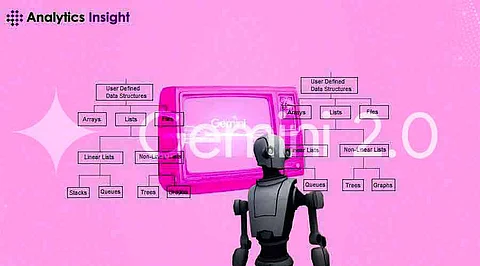

Google has unveiled its newest AI model, Gemini 2.0. This Google AI model promises faster performance and more capabilities, like generating images and audio across multiple languages. The company revealed that Gemini 2.0 would assist users in a variety of tasks, from Google searches to coding projects.
Gemini 2.0 is twice as fast as its predecessor. New AI agents under Gemini 2.0 will be able to think, remember, plan, and even act efficiently on behalf of users.
Google's director of Product Management, Tulsee Doshi, pointed out that these upgrades would help create incredibly interactive and responsive AI-powered assistants. This step is part of Google's improvement measures to maintain its lead in the search and ad revenue sectors. The heating competition from companies like OpenAI has prompted Google to embark on this innovation.
Google Gemini 2.0 features predictive technologies that improve user’s search experiences. The new Google AI Overviews feature will enhance the speed and quality of responses to complex questions. Additionally, developers now have access to the experimental Gemini 2.0 Flash, a faster, more efficient model. The tech giant claims that Gemini 2.0 Flash will approximate human reasoning capabilities in processing images and tasks.
The exciting new feature includes a web-based tool known as ‘Deep Research’. This tool will help users generate more detailed reports and gain deeper insight into topics. It is accessible to subscribers who use Google's paid AI product, Gemini Advanced.
Google's premier AI lab, Google DeepMind, is taking on a more central role in developing these new products.
One notable project, Project Astra, is an AI agent that runs on smartphone cameras to process visual input, such as summarizing text and interpreting images. Although still in its development stages, Astra has demonstrated great improvement since its first demonstration earlier this year.
Despite the promising advancements, some of Google’s experimental agents, such as Mariner, an AI tool designed to assist with online shopping, showed limitations. The assistant could add items to the shopping cart but not save the users much time.
The search giant also developed two new AI agents, Jules, an AI-powered code assistant for engineers, and an unnamed AI agent for video games. The unnamed AI agent will provide real-time conversation and suggestions based on game visuals. Both of these projects are still experimental but clearly show the growing scope of AI agents in different domains.
Investors have raised several concerns over the return on investment from costly AI projects, but Google remains hopeful.
According to Koray Kavukcuoglu, Google DeepMind's Chief Technology Officer, the company's progress over the past year has been impressive. The newer Google AI models provide more capability at a lower cost than previous versions.
Google continues to expand the frontiers of AI with models such as Gemini 2.0, further establishing its stronghold in the AI and chatbot industry.
